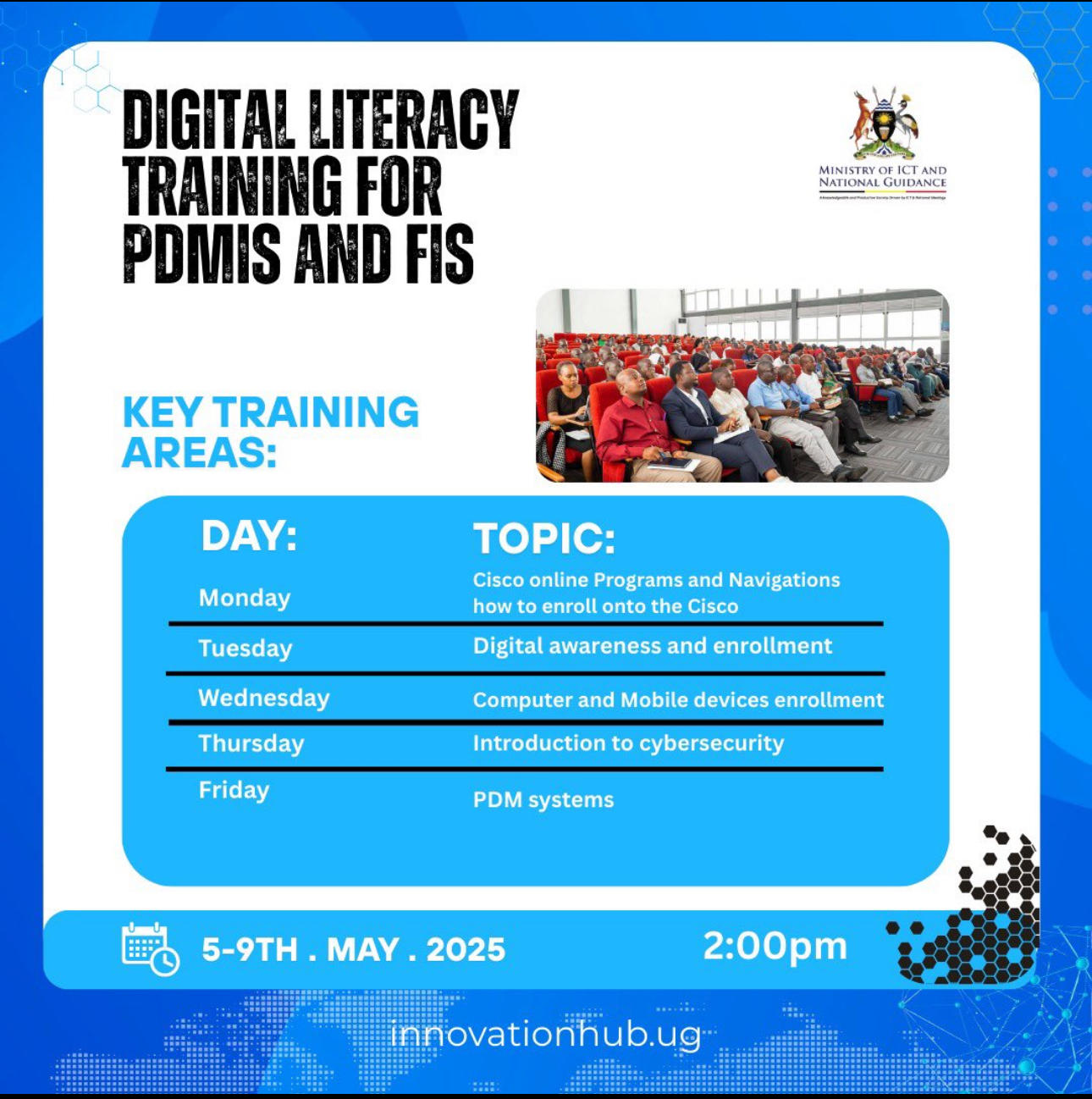Key Priorities [2024-25]
-
Enhancing ICT skills and vocational development
-
Effective communication and national guidance
-
Strengthening Cyber Security in the country
-
Strengthening of Business Process Outsourcing
-
Supporting local innovation and promoting export of knowledge products
Latest from the Ministry
Digital Literacy Training for Local Government Officers
PDMThe Ministry of ICT and National Guidance has officially launched a Digital Literacy and Skilling Training aimed at strengthening the capacity of local government officers in using digital tools, with a focus on the Parish Development Model Information System (PDMIS) and the Financial Information System (FIS). This program is implemented in partnership with the International Telecommunication Union (ITU), the Uganda Institute of Information and Communications Technology (UICT), and with support from the People’s Republic of China. While addressing participants during the orientation session, Permanent Secretary Dr. Aminah Zawedde underscored the critical role of civil servants in Uganda’s digital future. “Digital transformation begins with people. Equipping public officers with the right skills ensures that government services are not only efficient but also inclusive. This training is a vital step toward building a digitally empowered public sector,” she said. Dr. Fredrick Kitoogo, Principal of UICT, added that the training represents a shared commitment to inclusive digital transformation. “We recognize the realities you face in the field, often working under constraints. This training is tailored to close that skills gap by equipping you with practical tools that directly support your work,” she said. The training covers key areas such as Cisco online programs and navigation, digital awareness and enrollment, use of computers and mobile devices, cybersecurity fundamentals, and practical use of the PDMIS and FIS systems. Given current resource limitations, the training will begin online, with a hybrid model planned as circumstances permit. A dedicated WhatsApp group and virtual classroom have been created to support continuous learning, engagement, and knowledge sharing. Dr. Zawedde thanked all participants for their ongoing dedication to implementing the Parish Development Model and encouraged active participation throughout the program. The Digital Literacy and Skilling Training reaffirms the Ministry’s commitment to building a capable, connected, and digitally empowered public sector—one that can effectively support Uganda’s journey toward inclusive digital growth.
May 7, 2025



40m+
Mobile Subscriptions17m+
Internet Subscriptions1,466
Government Offices connected to Fibre Internet4,400+
Kms Covered by Fibre17
Regional ICT Innovation HubsUpcoming Events
-
May 21st - 24th 2025Pearl of Africa Tourism Expo 2025
Speke Resort Munyonyo, 08:00am
-
June 25th - 27th 2025Middle East & Africa Digital Transformation Summit
Kampala Serena Hotel, 09:00am
Government eServices
Recent Releases
- Digital Vision Uganda 2040
- Ministerial Policy Statement (MPS) 2025/2026
- Gitex Africa 2025 Press Release
- FINAL PRESS RELEASE PRODUCT TALK ON TECH LEADERSHIP IN AFRICA
Ministry Projects
- Big Data Landscape Assessment for Uganda
- Artificial Intelligence Landscape Assessment for Uganda
- ICT Local Manufacturing
- ICT Application for People with Disabilities
- Last Mile Connectivity











